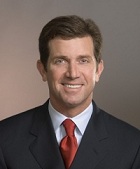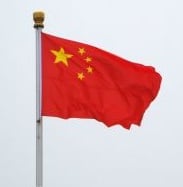In the second quarter, Johnson & Johnson ($JNJ) set the tone on China outlooks for big pharma, noting rapid policy and consumer changes that were leading to a slowdown in business for most multinationals.
 |
| Johnson & Johnson CEO Alex Gorsky |
But analysts on the Oct. 13 third-quarter earnings call largely shunned the state-of-play in China, though Asia-Pacific did get some attention on Remicade as Louise Mehrotra, vice president of investor relations, highlighted lower sales as well as a global hit to overall sales across the company from a broadly stronger dollar.
Most surprisingly there was no chatter on the yuan. In August, the People's Bank of China moved to reset its daily parity rate to the dollar, shocking markets with a weaker fixing and effectively widening the trading band. The currency is not fully convertible on the capital account, and a steady to appreciating narrow trading band has underlain expectations for years.
"In regions outside the U.S. our operational growth was 2.1% while the effective currency exchange rates negatively impacted our reported results by 15.8%," Mehrotra said on the call. "On an operational basis both Europe and the Western Hemisphere excluding the U.S. grew 2.7%, while the Asia-Pacific Africa region grew by 1.2%."
She also gave some color on Remicade, which faces a slew of biosimilar challenges across the globe, though she noted that in Japan sales were off because of inventory issues even as new challenges loom there.
"Remicade export sales were down over 40%, with two-thirds of that decline attributed to sales to our partners in Japan, due to an inventory drawdown in preparation for a label expansion for a new indication," she said.
In August, Japan's Ministry of Health, Labour and Welfare gave the nod to several new drug indications, including Mitsubishi Tanabe's Remicade for intravenous use and indications of entero-Behcet, neuro-Behcet and vasculo-Behcet diseases.
But this month, Japan's Nichi-Iko Pharmaceutical applied for Pharmaceuticals and Medical Devices Agency approval for a biosimilar of Remicade, with a biosimilar version of the drug already available from Nippon Kayaku.
 Gary Pruden, worldwide chairman of medical devices, who handled the call for CEO Alex Gorsky, cautioned on counting out Remicade in the race with biosimilars, noting that the key is whether a doctor recommends a patient switch. He also commented briefly on China for devices and pharmaceuticals in the context of emerging markets.
Gary Pruden, worldwide chairman of medical devices, who handled the call for CEO Alex Gorsky, cautioned on counting out Remicade in the race with biosimilars, noting that the key is whether a doctor recommends a patient switch. He also commented briefly on China for devices and pharmaceuticals in the context of emerging markets.
"Our annualized sales in China alone continue to expand and currently exceed $1 billion year-to-date. We have a strong leadership position in categories such as trauma, minimally invasive surgery and sutures that help facilitate a tip-of-the-sword strategy to establish leadership scale in emerging markets where we can then expand our key growth platforms," he said.
"Working with our partners in the pharmaceutical business, we recently announced the China Lung Center Project which will work to bring our medicines, technologies and resources to bear, to address one of that country's leading cause of death, and ultimately advance the scientific knowledge and practice of lung surgery around the world."
- here are the J&J earnings release and presentation